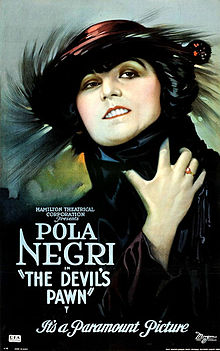
Let Us Now Praise Non-Jewish Jews
The tale is informative: To travel outside the Pale of Settlement, Jews needed a “yellow passport.” Jewish women couldn’t even work as prostitutes without that paper, though prostitution was legal in Czarist Russia. And this is the cruel road that our refined but impoverished heroine seems doomed to follow, while doing brilliantly in her studies. What is enlightening is that a young woman could study medicine (there seems to be one other woman in the classroom).
Svigals’ non-stop sound track combines klezmer, mazurka, atonal Bartok, and her poignant wailing at an unbearably sad moment in the film. (The score was initially commissioned by the Washington, DC, JCC.) More power to Svigals – with her mane of white hair, a fiddler possessed, one of the Klezmatics’ founders – for resisting musical schmaltz.
And what could be more Jewish than funding from the Foundation for Jewish Culture, which is sponsoring the film’s upcoming five city tour of Vancouver, Miami, Boston, Philadelhia and Houston (http://jewishculture.org/music) with Svigals and Lerner.
If “The Yellow Ticket” is a curiosity worth watching, the festival opener, “AKA Doc Pomus,” is a heart and soul music history with great soundtrack truly worth seeking out. This is the story of Jerome Felder, a poor, Jewish boy from Brooklyn, crippled by polio, who reinvented himself as “Doc Pomus.” Son of immigrant parents, he gravitated to the Negro jazz scene first as a blues singer then as composer of more than 1,000 songs, including mega hits “Save the Last Dance for Me” and “A Teenager in Love.” His music, mostly co-written, was sung by B.B. King and Elvis. Most amazing, in an endlessly amazing life, Doc Pomus was approached by Bob Dylan to write lyrics for him when Dylan was up against a writer’s block. (Doc did. Nothing much seems to have come of this moment.)
He was smart, he was talented, and, even crippled, Doc Pomus attracted the blonde, beautiful shiksahs.That and the fact that he and his brother, big name divorce lawyer Raoul Felder, held a huge joint birthday party at Katz’s Delicatessen on the Lower East Side seem to be the most distinctly Jewish aspects of Doc Pomus. As his daughter, Sharyn Felder, said in discussion after the screening, “He was a bagel and lox Jew.” (Felder, a one-woman archivist for her father, directed the film with Peter Miller and Will Hechter. We’re betting that it’ll find a distributor.)
AKA Doc Pomus will be showing at the Reel Abilities – NY Disabilities Film Festival –March 7. 9 and 12 at locations in Manhattan, Queens, the Bronx and Great Neck. For details, visit http://newyork.reelabilities.
The film festival’s opening with Doc Pomus, the crippled Jew who reinvents himself as a one-of-a-kind American, followed by a silent film with the happy ending of the Jew finding out she’s not Jewish, indicates just how secure the New York arts scene is when it comes to what makes a film Jewish. Though don’t get me wrong. The festival includes the New York premieres of “The Trial of Adolf Eichmann” and “Hava Nagila (The Movie).”
It’s too early for a lifetime achievement award, but my vote for Best Anonymous Star goes to Glenn Raucher, the tall, bearded man who handles Walter Reade Theater crowd control with humor and kindness. Appearing in the lobby before screenings, he assures the crowd of nervous Jews that there’s not a bad seat in the house. Director of Theater Operations, Film Society of Lincoln Center, Raucher says, “These are my people. That could be my grandmother.”



